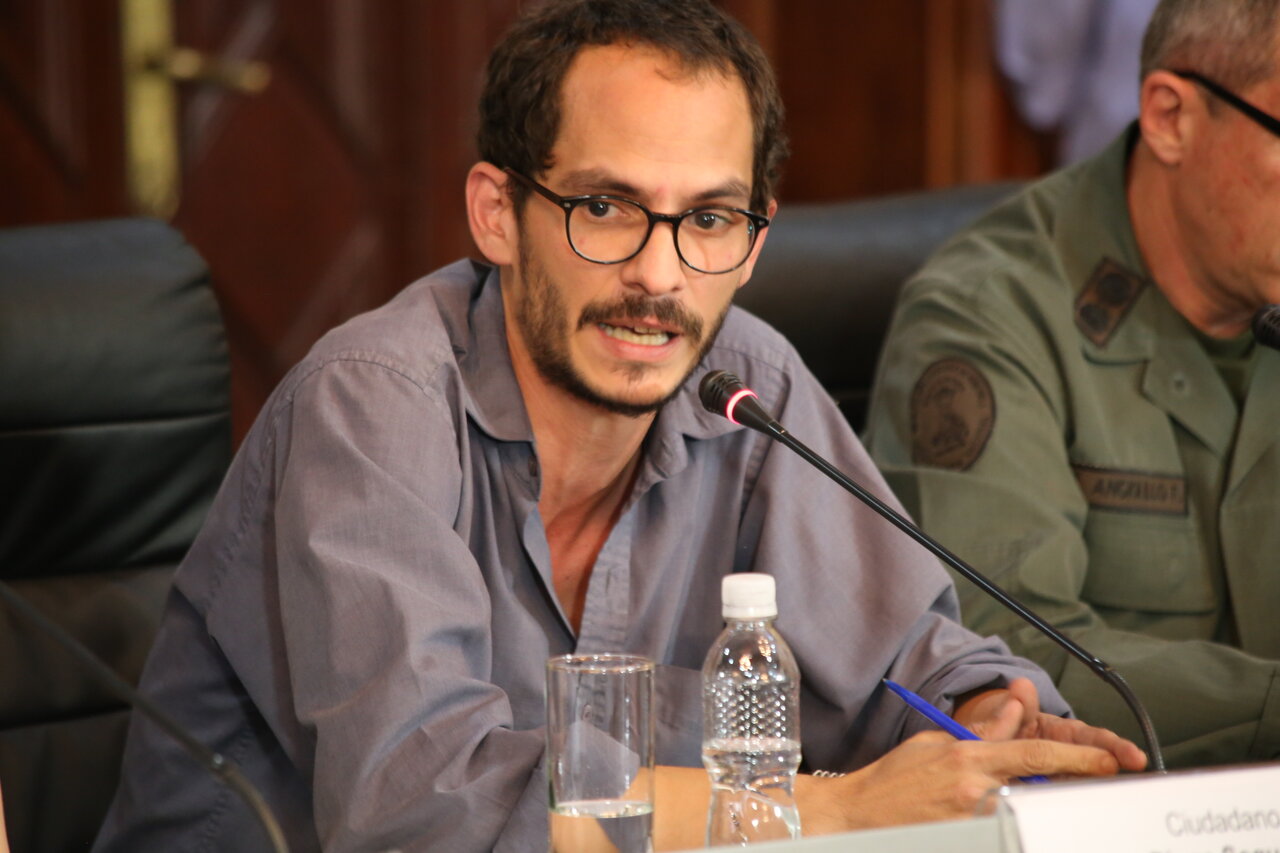‘Power play on Venezuela’s coast is about hegemony, not drugs:’ Analyst

Venezuelan analyst Diego Sequera told Iran’s Mehr News Agency that Washington’s latest maneuvers in and around Venezuela are not truly about the drug trade.
From President Donald Trump’s admission of authorizing covert CIA operations to an expanded naval presence and strikes on small vessels, the analyst argued these moves are designed to reassert American influence in a fracturing world rather than to curb cocaine shipments.
Trump has publicly confirmed he authorized covert CIA operations targeting Venezuela. Reporting also shows the U.S. has increased naval deployments in the southern Caribbean.
“This isn’t about drugs,” Sequera said. “It’s a targeted effort to reimpose U.S. dominance in the Western Hemisphere and curb the rise of emerging powers.”
Sequera framed the pattern as a shift from proxy measures to overt signaling. Whereas Trump’s first term leaned heavily on domestic opposition actors to produce a parallel presidency, the current playbook, he argued, relies on a mix of public military pressure, legal cover for covert operations, and promotion of new opposition figures — notably Maria Corina Machado.
“The bigger fleet, the verbal threats, the public invocation of Section 50 authorities — these are theatrical but dangerous,” he told Mehr, arguing that the performance serves both to shape media narratives and to leave room for later de-escalation if beneficial to Washington.
The factual basis for Washington’s drug-related claims is heavily contested. Sequera cited international datasets that put Venezuela’s share of cocaine transit well below the levels invoked by U.S. rhetoric; independent analyses, and UNODC mapping, show main trafficking flows running through Colombia, Ecuador, and Peru, with Venezuela representing a smaller slice of the total picture.
“If Caracas were truly the narco-state Washington claims, it would be treated as a partner, not an enemy,” he said.
Recent strikes on speedboats and the deaths they caused have intensified scrutiny. Since September, the U.S. campaign has struck multiple small vessels and killed over 60 people, raising legal and human-rights concerns that international bodies and legal experts are now examining.
Reporting by international outlets has raised questions about whether the targeted vessels were actually trafficking to the U.S. market or operating on different routes, and whether proper legal and evidentiary standards were met. Critics warn such actions risk extrajudicial harm and geopolitical escalation.
Sequera painted Washington’s motivations as threefold: geopolitical, energy-driven, and ideological.
Containing Venezuela, he argued, weakens a hub of multipolar connections with China, Russia, and Iran; it also targets vast Venezuelan oil reserves seen as strategically valuable for an industrial era dependent on energy security. And politically, punishing a durable socialist state serves as a warning across the region.
Caracas, he added, has not stood alone. Diplomatic backing, technical cooperation, and commercial lifelines from Russia, China, and Iran — spanning military advice, alternative payments, and energy-sector collaboration — complicate any straightforward U.S. intervention and have helped Venezuela absorb pressure.
“The response has been total mobilization across political, economic, and social fields,” Sequera told Mehr, warning that Washington risks misjudging Venezuelan nationalism and producing unintended blowback.
Venezuela has lodged diplomatic protests and moved to suspend some energy deals with neighbors (e.g., Trinidad & Tobago) amid the regional military activity and U.S. warship visits; Caracas is also publicly courting deeper ties with major partners.
As tensions increase, Sequera urged multilateral mechanisms to de-escalate the crisis and cautioned that framing the campaign as strictly anti-drugs masks a broader strategic contest — one in which Venezuela has become a frontline of a contest over the shape of the global order.
Leave a Comment